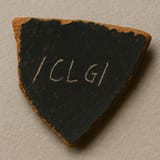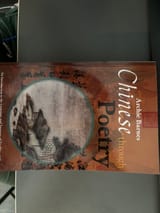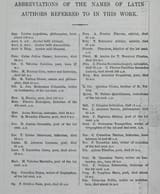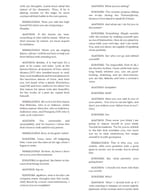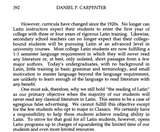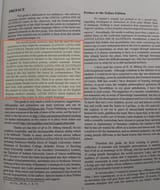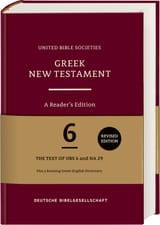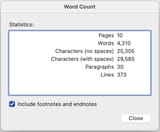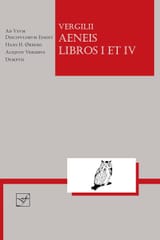/clg/ - Classical Languages General
Ostracized edition
>τὸ πρότερον νῆμα·
>>24425603
>Μέγα τὸ Ἑλληνιστί/Ῥωμαϊστί·
https://mega dot nz/folder/FHdXFZ4A#mWgaKv4SeG-2Rx7iMZ6EKw
>Mέγα τὸ ANE·
https://mega dot nz/folder/YfsmFRxA#pz58Q6aTDkwn9Ot6G68NRg
>Work in progress FAQ
https://rentry dot co/n8nrko
All Classical languages are welcome.
Anonymous
6/19/2025, 3:02:55 PM
No.24479032
[Report]
>>24479151
>I don't know shit about the particular thing you asked about but I'm going to give you advice anyway and YOU OUGHT TO BE FUCKING GRATEFUL, kiss my feet, I'm a god, I know everything.
Why are 90% of posters on this site like this?
Anonymous
6/19/2025, 4:16:27 PM
No.24479143
[Report]
>>24479295
Reminder that if the post is aggressively retarded, it’s probably bait.
Anonymous
6/19/2025, 4:23:55 PM
No.24479151
[Report]
>>24479689
>>24479032
You're welcome, glad you joined us for a second thread. Any problems you need solved, just ask away.
Anonymous
6/19/2025, 4:29:39 PM
No.24479163
[Report]
>>24479347
A favor, OP, please no more AI images. There are countless ostraca, manuscripts, frescoes, architectural sites, pottery types, artifacts, etc. which make for good eye-catching imagery. You may even spark someone's interest in that particular object.
Anonymous
6/19/2025, 5:02:26 PM
No.24479254
[Report]
>>24479557
cant wait to start
Anonymous
6/19/2025, 5:19:04 PM
No.24479295
[Report]
>>24479143
Sorry. I'll try to be less obvious next time(s).
Anonymous
6/19/2025, 5:44:10 PM
No.24479347
[Report]
>>24482916
>>24479163
I wanted one with /clg/ on it, come on, this one's pretty realistic
Anonymous
6/19/2025, 7:27:15 PM
No.24479557
[Report]
>>24479653
>>24479254
Excellent book. Top pick. Check out Cai Zong-Qi's book if you want more after.
Anonymous
6/19/2025, 7:52:08 PM
No.24479635
[Report]
>>24479102
Pretty sure Thoureau quotes this passaage in Walden
Anonymous
6/19/2025, 7:59:11 PM
No.24479653
[Report]
>>24479557
will do, thanks for the rec
Anonymous
6/19/2025, 8:14:13 PM
No.24479689
[Report]
>>24479151
Nope. I'm not here to get anything from you. You think you're some kind of guru.
Anonymous
6/19/2025, 8:26:07 PM
No.24479722
[Report]
>>24479102
>no salt in the basic bread
c'mon Cato
If you haven't done 1,225 chapter reps of Familia Romana can you really say you've completed it?
https://youtu.be/Jt119q8Jmho?si=-5zhd41XLFc5a-tE
Anonymous
6/20/2025, 12:18:57 AM
No.24480336
[Report]
>OP pic
WHAT THE FUCK ANON? YOU CAN'T DO THIS TO ME, I AM A RIGHTEOUS CITIZEN!
Anonymous
6/20/2025, 12:31:30 AM
No.24480371
[Report]
>>24480155
I saw that video, and I have mixed feelings about such a regime. On the one hand, if such a course is necessary to continue making easy progress on new chapters, so be it. On the other hand, you're spending most of your time reinforcing the content of the earlier chapters and the least amount of time on the later chapters, the more difficult chapters containing the most complete Latin, and the ones that actually require the most practice. If you blindly follow this, you're spending a disproportionate amount of your time practicing "Roma in Italia est," and a paltry amount of time practicing the subjunctive, which is introduced late in the book. This would magnify something that's already a weakness of the book used as intended.
Anonymous
6/20/2025, 2:46:28 AM
No.24480612
[Report]
>>24480155
eh, kinda overkill, maybe keep only a trail of X previous books instead of all of them, so e.g trail of 3
1
12
123
1234
2345
3456
etc.... hence X+1 re-reads for each
>>24480155
I can't imagine why anyone would waste so much time on pseudo-Latin. Good idea for actual texts though.
Anonymous
6/20/2025, 3:14:13 PM
No.24481666
[Report]
>>24481693
Anonymous
6/20/2025, 3:30:04 PM
No.24481693
[Report]
>>24482006
>>24481666
what is the work
Anonymous
6/20/2025, 3:37:01 PM
No.24481706
[Report]
>>24480883
Familia Romana is classical latin.
Anonymous
6/20/2025, 5:16:54 PM
No.24481931
[Report]
>>24480883
>pseudo-latin
I dont even like llpsi but how do you think one learns a language?
Do you teach esls solely with shakespeare?
If the grammar and syntax are correct it is Latin, "fake Latin" is nonsense
Anonymous
6/20/2025, 5:30:08 PM
No.24481966
[Report]
>>24480155
Vocem istius calvi sustinere nullo modo possum.
Anonymous
6/20/2025, 5:41:47 PM
No.24482006
[Report]
>>24481693
cassels new latin dictionary
How hard is it to pivot into modern Greek once you learn ancient Greek? Naturally I plan to learn ancient Greek, but Odysseas Elytis seems pretty cool too, but I'm not sure whether you could just jump into his works with your knowledge of ancient Greek, or if you'd have to learn the language from the beginning for 19th-20th century literature from Greece.
Anonymous
6/20/2025, 9:49:41 PM
No.24482652
[Report]
>>24483344
>>24482258
given all the modern input available, I wouldn't imagine too hard; I also assume many high brow authors will try to Atticize their speech
Anonymous
6/20/2025, 11:14:59 PM
No.24482899
[Report]
>>24480155
me but with the Bible and Dante
Anonymous
6/20/2025, 11:20:20 PM
No.24482916
[Report]
>>24486412
>>24479347
in case you didn't know, on a moral level it is actually worse for it to be realistic
Anonymous
6/21/2025, 1:37:24 AM
No.24483344
[Report]
>>24482652
>I wouldn't imagine
>I also assume
i.e. you don't know
Anonymous
6/21/2025, 12:10:39 PM
No.24484393
[Report]
bump of resurrection
Anonymous
6/21/2025, 1:09:11 PM
No.24484501
[Report]
>>24484688
>>24482258
Archaic Greek =/= Classical (Attic) Greek =/= Koine Greek =/= medieval Greek =/= modern Greek.
I studied the development of the language a little, and while medieval Greeks could read ancient Greek, there were various phonetic degenerations. The spoken form was significantly different, and the high grammatical standard was maintained largely among the clergy and aristocracy.
After the fall of the Byzantine empire, the language underwent immense decay, with large parts of the vocabulary and grammar being dropped, including a number of cases (the clergy still maintained knowledge of the classics).
At the time of the Greek national renaissance, various attempts were made to resuscitate the language and cultural life; One major tool in this endeavour was the katharevousa, a formal, complex form of Greek that drew extensively on academy French for its inspiration, as well as ancient Greek. This katharevousa for a long time became the great hope of the Greeks. In addition to this, there was also a back to the classics movement of yet more ambitious folk, who attempted to restore and revive the ancient language.
The struggle for the future of Greek was fought between the proponents of Demotic (the actual popular language spoken by the people), katharevousa (an artificial literary language) and the revivalists (who were attempting to resurrect ancient Greek directly). The latter two movements both made significant contributions to modern Greek and succeeded in reviving grammatical cases, improving the grammar, and purifying and expanding the vocabulary. But in the end, both the revivalist faction and the proponents of katharevousa were defeated, and a polished up Demotic became the standard for modern Greek.
You may wonder, what were the differences between these forms of Greek? After all, they are all Greek. But as we said, the grammar and vocabulary could differ radically, and these forms were both learnt and mastered in a 'bilingual' style, similar to Hebrew revivalists among the Jewish people. Katharevousa was upheld as a literary and formal language, and Demotic dominated in general day to day situations.
Obviously learning ancient Greek will be very helpful if you want to learn modern Greek. But do not set your hopes too high, is all I am going to say.
Anonymous
6/21/2025, 2:53:43 PM
No.24484688
[Report]
>>24485703
>>24484501
Anyone who treats Attic and Koine as two separate languages is an idiot. Yes, Koine lacks some of the grammar of Attic, but if you can read Attic you can read Koine with ease. It's like saying Shakespearean English is not modern English. Most of the ancient dialects pose a more difficult challenge (which makes sense, Koine was based on Attic).
Anonymous
6/21/2025, 10:00:12 PM
No.24485703
[Report]
>>24486338
>>24484688
Well, my father studied Koine and he said he can't read the Attic Greek I handed him once (Aeschylus).
Anonymous
6/22/2025, 2:48:34 AM
No.24486338
[Report]
>>24485703
>Aeschylus
While I don't find most of his dialogue to be that complicated, his choruses are why my professor referred to him as "torture to undergrads". I'm not surprised that he couldn't read it. Most people with education in Attic probably couldn't read the Periclean funeral oration without notes (for a prose example).
Anonymous
6/22/2025, 3:26:46 AM
No.24486412
[Report]
>>24482916
Yeah yeah I bet people said the same when they invented the printing press
Anonymous
6/22/2025, 4:46:16 PM
No.24487436
[Report]
ᵇᵘᵐᵖ
Anonymous
6/22/2025, 5:52:11 PM
No.24487586
[Report]
>>24487614
HUDREEEEEEEEEAHHHHH
HUDRREEEEEEEEEEEAHHHH
Anonymous
6/22/2025, 6:05:21 PM
No.24487614
[Report]
Are loeb translations 1:1 word for word or tought for tought like some bible or modern classics translations?
I mean can I just read them side by side to actually learn the vocabulary as a beginner with zero understanding of latin or they are for advanced learners.
Also for greek, is there any works that have the phonetic sounds or some kind of translation with original greek writings AND english translations so I can learn this foreign alphabet without a IRL teacher?
Anonymous
6/22/2025, 9:53:58 PM
No.24488140
[Report]
>>24487994
neither, middle ground, some idiomatic expressions just don't make immediate sense if you translate them literally term by term so it's inevitable that you won't be able to always compare term by term, but still, good enough if you have gotten to a basic level, my first real Greek encounter(aside from snippets from the textbook) was a Loeb of Xenophon
as for the second, if I get what you are asking, you probably meant 'translitteration'? I'm not familiar with this kind of text, with translitterated Greek on one side and english on the other
I get how they'd be useful but I think teachers don't want students to get too used to translitterated Greek
Anonymous
6/22/2025, 11:29:44 PM
No.24488392
[Report]
>>24488533
Heu! Timet et medicus mihi et uxor quod caco ego atrum;
nescio quid sit aut unde at nolo quisque timere.
I'm taking a Koine Greek summer class for seminary, and I'm struggling to remember all the different ways to modify nouns. I get it's by case, gender, and number, I'm just having trouble memorizing the particular suffixes used. Does anybody have any good techniques for memorization that I could try?
Anonymous
6/23/2025, 12:23:07 AM
No.24488497
[Report]
>>24493353
>>24488415
If it's for seminary, you probably have some Greek or pseudo-Greek prayers memorized already. Rely on those.
Anonymous
6/23/2025, 12:47:12 AM
No.24488533
[Report]
>>24488392
Saepe id accidit si sanguis mixta est stercore, quod signum est vulneris in visceribus. Hoc gravis morbus fieri potest. Cura ut valeas quam plurimum, amice.
Anonymous
6/23/2025, 2:47:00 AM
No.24488770
[Report]
>>24493353
>>24488415
the standard and proven way is to drill paradigms, in particular, you choose one noun as representative of each class and write them down in both directions
so e.g first declension you do ἡ κρήνη, ἡ χώρᾱ, ἡ θάλαττα, ἡ μάχαιρα, ὁ πολίτης which ought to cover every variation due to the pure/impure+long/short alpha thing + masculine, then you do the same with second and third declension varieties
albeit, to tell you the truth, you don't need to have them all drilled 100% including those rarer sigmatic third declension ones from the start, just make sure at least to get first and second declension done(even in second declension, you don't need to do Attic declension ones asap e.g λαγώς, just focus on the main paradigms), then bit by bit try at least the main third declension paradigms
i dont really get the use of the participle in "ab urbe condita" type sentences
i think its meant to denote an action? its mainly identifying what the participle is there for what i find hard
Anonymous
6/23/2025, 2:13:31 PM
No.24489693
[Report]
>>24489674
I like to imagine in this sense the participle is carrying the perfect aspect and is used adjectivally like in Greek
Anonymous
6/23/2025, 3:22:25 PM
No.24489777
[Report]
>>24489959
>>24489674
Could you rephrase your question? It's not clear what you're misunderstanding. That specific phrase or a general type of construction? The participle is an adjective, and it's telling the kind of city. The specific phrase "ab urbe condita" (word for word: "from the founded city") is used to mean from the time the city was first founded/established. Since you said you have trouble with this "type," could you share some other examples if you have any?
Anonymous
6/23/2025, 3:55:31 PM
No.24489823
[Report]
>>24489959
>>24489674
'urbe condita' alone would mean something like 'when the city was founded' or 'upon foundation of the city'. 'Ab' specifically denotes 'from', 'from when the city was founded'
This is slightly tangential but ablative absolutes are best considered as temporal, causal, concessive, or conditional clauses. See Allen & Greenough 419-420 for fuller explanations. This is not to suggest 'ab urbe condita' is an ablative absolute but in colloquial use could be considered in a similar fashion.
Anonymous
6/23/2025, 3:58:03 PM
No.24489828
[Report]
>>24489674
You should understand the participle as carrying the perfect aspect rather than the aoristic.
>from the city having been founded
>>24489777
>That specific phrase or a general type of construction?
the general type of construction
i used that example because its the quintessential example but its this sentence from de divinatione that filtered me
>Ne Pherecydes quidem, ille Pythagorae magister, potius divinus habebitur quam physicus, quod, cum vidisset haustam aquam de iugi puteo, terrae motus dixit instare.
i think it should translate to
>Not even Pherecydes, Pythagora's teacher, shall be thought of as a prophet rather than a physician, because he stated that earthquakes were to appear if water were seen drained from a perduring well
my first thought upon reading "cum vidisset haustam aquam" was "when he saw the draining of the water" but after reading it again i think "haustam" may be an adjectival predicative of the object
so i guess my problem is discerning between the different uses of the participle
>>24489823
i understand that "ab urbe condita" is akin to an ablative absolute but the problem arises when the construction is not in the ablative case
Anonymous
6/23/2025, 5:08:52 PM
No.24490004
[Report]
>>24490043
>>24489959
water drained
Guess you just have to get used to it, participles have lots of uses much as they do in English and other languages.
Maybe it will help to consider participles in terms of their tense, in this case clearly perfect which is why 'the draining' does not work here.
'Aquam' is not genitive and its tense, number, etc. all agree with 'haustam' which is a pretty big clue.
>>24490004
maybe i was extrapolating the meaning of "the x-ing of y" of "ab urbe condita" into sentences without the ablative when i shouldnt?
im assuming that "ab urbe condita" should be taken to mean "from the founding of the city"
Anonymous
6/23/2025, 6:03:09 PM
No.24490108
[Report]
>>24490043
>from the founding of the city
This is English terminology
Latin works differently. Word for word it is
>from city foundED
Ab urbe condita is a special case and should not be a template for other uses of the participle
Give this review a read if you ever want to realize how bad medieval Latinist education is in the US and UK. It seems no academic-published translations can be trusted.
https://brill.com/view/journals/viv/58/4/article-p357_10.xml
>>24489959
Ab urbe condita is a temporal construction, which doesn't solely happen in the ablative ("post natum Christum"). "Condita" carries both adjectival and verbal force: it describes the city's resulting state of being (founded) and the completed action of its founding at the time of reference.
Where states of being or becoming are usually expressed through copulative verbs in English (to be, to become), the adjectival force of condita makes it unnecessary. To illustrate, think of this example in English:
>Christ, born of a human mother, forgave our sins...
This use of born is adjectival and attributive, describing the noun "Christ". However, and this is the crucial part, it does not define any temporal point of reference for the main clause (forgave).
Latin verbs in the perfect convey aspect contextually. This extends to participles and this is what enables ablative absolute constructions ("nato Christo"; Christ having been born...).
In this case, though, we're not dealing with an absolute construction, just the joint use of a preposition of time (ab, post) and a participle that describes a completed action at a specific time, enabling a construction that is impossible in English. You can't say "after born Christ" or "from founded city", but you can in Latin due to this specific nuance of participles strongly retaining their verbal force (aspect).
Anonymous
6/23/2025, 9:00:17 PM
No.24490545
[Report]
>>24490403
this is the answer
Anonymous
6/23/2025, 9:30:41 PM
No.24490624
[Report]
>>24489959
>>24490043
I think a big part of your problem could be that you're staking too much when appraising your understanding of the Latin on whether you can translate it into understandable English. Consider the word "cum" for another example. Among other things, it can mean "because" or "although." The fact that in the same sort of grammatical construction it can mean two things that are opposites in English shows that thinking of it in terms of these English translations is misleading.
Anonymous
6/23/2025, 10:38:02 PM
No.24490795
[Report]
>>24490312
>Lamenting the state of his country, Wyclif apparently pauses to reassure us that “The kingdom of England is blind to such worldly prosperity and love of the name of the world” (p. 295); but the Latin is ‘Ad tantum enim mundana prosperitas et nominis temporalis cupiditas regnum Anglie excecavit’ (for this is how far worldly prosperity and desire for temporal renown have blinded the kingdom of England).
Anonymous
6/23/2025, 11:21:11 PM
No.24490890
[Report]
Anonymous
6/24/2025, 2:39:43 AM
No.24491350
[Report]
>>24491576
>>24490312
>many of the elect are called poor
caught me off guard
>>24490312
Grammatical ignorance aside I don’t understand how you could have studied medieval Latin for long enough to have a published translation and still not know that verse well enough to not even need to worry about the grammar. Like you not only never read the Bible in English, you weren’t even forced to read the Vulgate in some class because of its importance to medieval Latin authors?
Anonymous
6/24/2025, 4:09:37 AM
No.24491513
[Report]
>>24491535
>>24490312
What a sad state of affairs. The paragraph where the translations are showered with praise by other academics speaks to the insular nature of medieval studies.
Anonymous
6/24/2025, 4:11:58 AM
No.24491518
[Report]
>>24491535
>>24491479
As said in the Brill piece students do not learn Latin until grad school and are taught by those who did not learn Latin until grad school. They lack fundamentals. Most medieval writers, if not all, were educated through extensive use of classical authors. It only follows that those studying them now should be as well.
Anonymous
6/24/2025, 4:12:13 AM
No.24491519
[Report]
>>24491479
Especially considering that, if you're translating Wycliffe, that presumably means you're interested in him, which means you're interested in medieval English Christianity and are familiar with the Latin Bible. If not, then how tf did you get into Wycliffe?
https://classics.unl.edu/person/stephen-lahey/
>Stephen E. Lahey is Associate Professor of Religious Studies at the University of Nebraska Lincoln.
>Professor Stephen Lahey specializes in medieval theology and philosophy, and does research on the Oxford theologian John Wyclif (d.1384) and the Hussite movement in 15th Century Bohemia.
>Professor Lahey regularly teaches courses on Augustine, Dante, medieval theology, the relation of rational and religious thought, European culture before 1000 C.E.,and an introductory course on Religious Studies. He has taught courses on Thomas Aquinas, Classical Muslim philosophy, Death and Dying, and on his area of research, and conducts an Education Abroad trip to National University of Ireland Maynooth every other year.
https://www.stir.ac.uk/people/256245
>I [Stephen Penn] came to Stirling from the University of York, where I completed my DPhil on John Wyclif under the supervision of Prof. Alastair Minnis. My main research interests lie in Wyclif's Latin works, especially as they pertain to biblical exegesis and theology, and in scholastic and earlier medieval theological writing more generally.
>At Stirling I teach mainly in the areas of Old and Middle English language and literature, and linguistics (especially historical linguistics and the history of the English language). I also teach Latin to postgraduate students.
Imagine learning your medieval theology, philosophy, and/or Latin professor doesn't actually know Latin or, apparently, what any of the historical figures he's discussing even wrote.
Anonymous
6/24/2025, 4:21:28 AM
No.24491535
[Report]
>>24491555
>>24491513
>>24491518
My heart sank when I saw that review mention Irven Resnick in the second-to-last footnote among the translations that "are indeed better, [but] are still littered with unforced errors, despite what the reviews say," because I not only have that specific book the reviewer mentions (by Peter Alfonsi), but several others by Resnick in the same medieval Christian works series (St. Albert the Great, Peter the Venerable). Now I question if I can take any of those translated by Resnick at face value, or whether I need to dig up the Latin originals for all those works to keep by my side.
Anonymous
6/24/2025, 4:32:40 AM
No.24491555
[Report]
>>24491580
>>24491535
>whether I need to dig up the Latin originals for all those works
Always do this
Anonymous
6/24/2025, 4:33:12 AM
No.24491556
[Report]
>>24490312
What language has produced the most faithful translations of Latin?
Anonymous
6/24/2025, 4:43:58 AM
No.24491576
[Report]
>>24492776
>>24491350
How the fuck did he even get "poor" from that? Did he really misread "pauci" as "pauper" or something? That has to be the case because the other place "pauci" appears in Wyclif's sentence, which Penn translates as "the faithful poor" should actually be "the faithful few." That, or he genuinely thinks it means "poor" and not "few." Here's that full Wyclif sentence in its Latin original:
>Sicut enim Cristus vocatus fuit blasphemus, quod est pessima pars heresis, sic pauci fideles, qui stant hodie in veritate legis domini, vocati sunt heretici a parte contraria anticristi. Et cum multi sunt vocati, pauci vero electi, verum est, quod pauci sunt nomine tenus heretici, qui tunc stabunt.
So yeah, something went terribly wrong in this dude's Latin education.
Anonymous
6/24/2025, 4:45:52 AM
No.24491580
[Report]
>>24491555
I do, but I usually only feel the need to check if something sounds clunky or if a passage stands out and speaks to me to the point that I want to look behind the English. Now, I feel like I can't trust any of the English, so I could constantly be getting the wrong idea of the text.
If you think this dude’s translation is bad just wait until zoomer medievalists start publishing translations
Anonymous
6/24/2025, 5:16:19 AM
No.24491640
[Report]
>>24493384
>>24491581
Future scholars will be trained following the Ranieri-Legentibus method, so we have reason to be optimistic.
Anonymous
6/24/2025, 7:24:27 AM
No.24491899
[Report]
>>24492302
>>24478787 (OP)
>Salvete Omnes
Anonymous
6/24/2025, 9:53:56 AM
No.24492121
[Report]
>>24487994
It's easy enough to learn the Greek alphabet from online sources, many of which include audio.
Anonymous
6/24/2025, 1:19:20 PM
No.24492302
[Report]
>>24491899
βρεκεκεκὲξ κοὰξ κοάξ
Anonymous
6/24/2025, 4:22:15 PM
No.24492555
[Report]
>>24492772
I’m gonna start Latin again. I finished DBG 7 months ago but got overwhelmed by other shit so had to stop there. Wish me luck bros
Anonymous
6/24/2025, 5:33:36 PM
No.24492675
[Report]
>>24490312
>The second [sentence] is that stat veritatem esse cum hoc quod non sit aliquid, cum veritas potest esse quod nihil sit, et tunc non est aliquid (it is possible for there to be a truth even if there is not anything, because it may be a truth that nothing exists, in which case there is not anything); or, as Lahey has [translated] it, “this truth – this, which is not a something, truly can be – holds with this – this is a nothing; and so it is not a something.”
Holy shit. This doesn't even make sense in english
Anonymous
6/24/2025, 6:15:21 PM
No.24492753
[Report]
>>24492776
>>24490312
>Many of the elect are called poor
Damn, and I thought my Latin skills were amateur. I'm guessing the translator misread "pauci" as some form of "pauper" and the whole thing was mangled from there.
Anonymous
6/24/2025, 6:24:37 PM
No.24492772
[Report]
>>24492555
*clang clang clang* agite porro adsimus anonymo linguae operam daturo!
Anonymous
6/24/2025, 6:27:39 PM
No.24492776
[Report]
>>24492753
Yes. As
>>24491576 points out, he does it a sentence earlier too, reading "the faithful few" as "the faithful poor." He literally just doesn't know what "pauci" means.
>>24478787 (OP)
Is there anyone here who can actually think in Latin?
Anonymous
6/24/2025, 9:32:40 PM
No.24493353
[Report]
>>24488497
That's a good idea, maybe I can start with memorizing the Lord's Prayer in Greek. I already have John 1:1 memorized, so at least I've already retained a few instances of declension.
>>24488770
Thanks for the tip anon, I'll try it out. I've made flashcards for the first and second declensions, but I think this method might be better for retention.
Anonymous
6/24/2025, 9:36:32 PM
No.24493362
[Report]
>>24493499
so is accusative + infinitive always interchangeable with object + subjunctive verb?
e.g. nolo te videre ~ nolo te videam
Anonymous
6/24/2025, 9:43:15 PM
No.24493384
[Report]
>>24491640
*Ranieri-Legentibus method TM, copyrighted and reserved by RANIERI & co.
Anonymous
6/24/2025, 9:48:23 PM
No.24493395
[Report]
>>24493403
>>24491581
Zoomer medievalists will just have AI translate for them. Would probably produce more accurate translations than that Wyclif case above desu.
Anonymous
6/24/2025, 9:50:52 PM
No.24493403
[Report]
>>24493395
There will be a split between zoomers who know even less Latin than the retard above and rely on Grok, and Ranierichad zoomers who will revive spoken Latin and write original epics
Anonymous
6/24/2025, 10:05:23 PM
No.24493447
[Report]
>>24493455
I mean, professional translators use AI and have for years. Before, it was Google Translate and DeepL, and now it's ChatGPT. The key was that they always just did it for the first pass, and then edited the result. But there are essentially no professionals who hand-translate from scratch with zero machine assistance. Sad, but reality.
Anonymous
6/24/2025, 10:10:03 PM
No.24493455
[Report]
>>24493447
Yeah but they all suck for latin
Anonymous
6/24/2025, 10:28:21 PM
No.24493499
[Report]
>>24493362
depends on the main verb, the one you chose gets both, but in proper classical with verbs e.g of saying like aio not really
Anonymous
6/25/2025, 12:40:06 AM
No.24493835
[Report]
What does /clg/ think about classical Esperanto?
Anonymous
6/25/2025, 1:01:37 AM
No.24493904
[Report]
>>24495030
What does aristophanes sound like in greek? He is so flamboyant and goofy sounding in english way past the point of bad taste
Anonymous
6/25/2025, 1:47:57 AM
No.24493993
[Report]
>>24494135
I’m going to write a Latin epic, keep your eyes peeled
Maybe it’ll take one year, maybe five, maybe ten. But I’ll finish it.
Dixi
Anonymous
6/25/2025, 3:03:14 AM
No.24494135
[Report]
>>24494153
Anonymous
6/25/2025, 3:14:19 AM
No.24494153
[Report]
Anonymous
6/25/2025, 1:05:44 PM
No.24495030
[Report]
>>24493904
I only read the Acharnians, I wouldn't say flamboyant comes to mind as adjective, a certain frenzy is palpable but I think it's part of the style. Gotta read more.
I came across an interesting figure from the 19th century, Lambert Sauver, who says he was at that time a professor at the Normal School at Amherst. He wrote at least three related books.
- Introduction to the Teaching of Ancient Languages
- Talks with Caesar De Bello Gallico
- The Vade Mecum of the Latinist: Thirty Chapters of Caesar to be Learned by Heart and Recited Every Day
In the first book, he gives his opinions (from 1878) about Latin instruction. He laments that students are only taught a "smattering" of Latin and criticizes the grammar-translation method, proposing instead the "natural method" (sound familiar?). He also proposes that Latin should be learned by studying the actual language of authors first (particularly Caesar) and only beginning explicit study of grammar "ex professo" after the students have attained a certain ease in reading Latin (sound familiar?). But what's really interesting is the method he proposed in the book.
The main part of his method for beginning students was to memorize thirty chapters of De Bello Gallico. The in-class instruction seems to consist of reciting these passages from Caesar, and drilling the class with questions following the text as closely as possible, and which can be answered by text verbatim from the passages. Students prime their understanding of the passage by reading an English translation.
>How long will it take to learn the thirty chapters? From _sixty to seventy days_ will be ample time. You may even go faster, if your pupils desire, but I do not recommend that. There is so much to be done and to be learned in those thirty chapters.
He recommends Epitome Historiae Sacrae as supplementary reading as soon as students are ready for it, and gives this schedule for progress:
>At the close of four or five months, we shall find that our pupils know by heart thirty chapters from Caesar, understand them as well as English, talk them, if I may say so, in Latin; and besides have read and understood the remainder of "De Bello Gallico," and also the "Epitome Historiae Sacrae."
His syllabus sounds ambitious, but it also sounds like he thought it worked for him in his experience. Bear in mind that he says he is assuming Latin classes are held five days per week. It would be difficult to summarize everything he says in the character limit here, so read it for yourself if you're interested in this sort of thing. IttToAL is only 57 pages. PDFs for these can all be found on Google Books.
https://www.google.com/search?udm=36&q=inauthor%3A%22Lambert%2BSauveur%22
Another thing that explains his method is that he views Latin through a purist lens. He dismisses mundane Latin colloquia as "Ollendorfism," saying "it does not lead us to the great works [of extant classical literature] which alone interest us..."
Anonymous
6/25/2025, 4:55:13 PM
No.24495403
[Report]
>>24495470
>>24495368
One reason I'm sharing this is that I thought this would be a fun summer challenge. There are almost 70 days from now until the end of August, so that should give "ample time" to memorize the thirty chapters.
I believe the thirty chapters are just the first thirty chapters of Book 1, so you can use any edition you like. However, if you want to follow Sauver, the thirty chapters (with macrons) can be found in his Vade Mecum.
https://archive.org/details/vademecumoflatin00caes
If you think the scripts would be helpful, the Talks with Caesar (which also contains the thirty chapters) can be downloaded here.
https://archive.org/details/talkswithcaesar00sauvgoog
Anonymous
6/25/2025, 5:22:03 PM
No.24495470
[Report]
>>24495480
>>24495403
>if you
Are you doing this yourself?
Anonymous
6/25/2025, 5:25:58 PM
No.24495480
[Report]
>>24495470
No. I just thought it would be a fun summer challenge for you. I'll be spending my free time at the pool.
Just ordered the new macronized Vulgate. Yes I will be reading it with a classical pronunciation. Yes I will be eliding word endings per the rules of classical poetry.
https://www.timothyalee.com/en/series/latin-vulgate-readers
Anonymous
6/25/2025, 6:24:44 PM
No.24495631
[Report]
>>24495516
I saw that recently. The macrons would be helpful for names in particular, which I never feel sure I am pronouncing correctly, but the price was awfully steep. I think the NT was $70. It looked like a large part of the pages are taken up by vocabulary banks, which pads the books considerably.
Anonymous
6/25/2025, 6:34:16 PM
No.24495649
[Report]
>>24495516
I'm reading the introduction in the free PDF sample provided, and I'm sorry to say, the typos are putting me off from this. And I haven't even gotten to the Vulgate text itself yet.
https://www.timothyalee.com/en/isbn/978-1-83651-234-9
Anonymous
6/25/2025, 6:46:36 PM
No.24495672
[Report]
>>24497627
>>24495516
>$70
What a scam lmao
Anonymous
6/25/2025, 7:39:28 PM
No.24495792
[Report]
>>24495516
Looks cool. I’ll await a digital copy to pirate.
Anonymous
6/25/2025, 10:26:26 PM
No.24496105
[Report]
>>24493302
I've occasionally had thoughts occur to me in Classical Chinese.
Anonymous
6/26/2025, 2:17:12 AM
No.24496546
[Report]
>>24497581
>>24495368
interesting, I'm not sure how well it would work as self-learning though, it seems quite the jump without a teacher, not for the faint so to speak kek
Anonymous
6/26/2025, 3:04:44 PM
No.24497581
[Report]
>>24497904
>>24496546
I don't know how Sauver's method would work for self-learning, but then again I've never heard of anyone that's tried it either. But I still think for anyone, memorizing the first thirty chapters of De Bello Gallico couldn't hurt, could it?
I completed the memorization of chapter 1 yesterday. It wasn't easy to cram everything into my short term memory, but the beautiful thing is that once it's in there, you can turn it over in your head at times when most other forms of studying would be impractical. If anyone else chooses to participate, I'd be interested to hear your experiences and your strategies for memorization. The biggest recommendation I can give is to consult a map if you don't already know the geography well so you at least can roughly place everything. The Dickinson College website has maps under the Media tab. The map I've posted here I found adequate for chapter one.
https://dcc.dickinson.edu/caesar/book-1/chapter-1-1
Anonymous
6/26/2025, 3:20:02 PM
No.24497598
[Report]
Anonymous
6/26/2025, 3:30:41 PM
No.24497627
[Report]
>>24498103
>>24495672
That's a fairly small amount of money for an average-sized person, I'd say? I wouldn't WANT to spend $70 on a single book, but I could easily.
Anonymous
6/26/2025, 4:08:08 PM
No.24497686
[Report]
>>24495516
Definitely would buy IF it were the whole bible with just the macronized text (no vocabulary) in a single volume.
Anonymous
6/26/2025, 5:54:57 PM
No.24497904
[Report]
>>24498369
>>24497581
>memorizing the first thirty chapters of De Bello Gallico couldn't hurt, could it?
No, but it could be a discipline trap. I imagine a more efficient method would be to go over the paragraph till you understand the significance of every part of it, then move onto the next paragraph, and re-read the previous paragraphs once in a while as a refresher and to make sure you haven't forgotten anything. You could even stick the paragraphs into an Anki deck and review them on the toilet. This way gives you more time to inpoot new paragraphs instead of spending time memorizing, which definitely has it's own value (I like to memorize selections of Latin poetry and prose that stand out to me). But don't let any of that stop you. If you're having fun memorizing DBG then keep doing it. I just think for most beginners trying to get a foothold in the language, memorizing every variation of "The _____ marched to _____, where they set up camp, and on the following day _____ reported to _____ that _____..." and so on is necessary.
Anonymous
6/26/2025, 7:09:50 PM
No.24498103
[Report]
>>24498232
>>24497627
That book is worth like $30 max
>>24498103
In your mind maybe, but $70 is a relatively fair price given the number of pages, the paper size, the hardcover material, and the amount of time it probably took to macronize and edit. Anyone who’s attended college has seen books of a similar quality going for well over $100. Can you show us even one that’s $30?
Anonymous
6/26/2025, 9:10:09 PM
No.24498369
[Report]
>>24498676
>>24497904
>Don't memorize anything, bro. You should do Anki on the toilet instead to utilize the spaced repetition system (SRS) for optimal learning efficiency... But then again, I do memorize stuff sometimes...
I've encountered the term "diligence trap" before, but there's a danger in supposing that everything challenging is a diligence trap. Did you read the book? According to the Sauver Challenge, the student memorizes thirty chaptersof Caesar--no more--in a process that should take only a couple of months. Once done, he has a good sample of Caesar that will always be with him wherever he goes. Like you said, there's a value to memorizing text, and it's fun, so it's hardly deserving of the epithet "diligence trap."
Anonymous
6/26/2025, 11:07:09 PM
No.24498676
[Report]
>>24498369
It's a diligence trap because the kind of people with the diligence to spend two months memorizing the first book of DBG would carry that diligence into all other aspects of studying Latin. The proficiency of a student who would complete this method says more about the ability of the student than the pedagogical value of the method.
Anonymous
6/27/2025, 2:45:48 AM
No.24499250
[Report]
>>24493302
only simple phrases, even after having composed for a while, it's hard to do it on the go in my head
Anonymous
6/27/2025, 2:59:28 AM
No.24499284
[Report]
>>24491581
GPT* translations
Anonymous
6/27/2025, 3:18:47 AM
No.24499317
[Report]
>>24499354
>>24495516
I remember you shilling this before
Fuck you you worthless parasite
Anonymous
6/27/2025, 3:39:35 AM
No.24499354
[Report]
>>24499461
>>24499317
Hey, I'm just another poster, and I also have no relation to the publisher, but I can attest to the hard work that must have gone into this publication. I know I will be placing my order today.
>>24498232
Yeah there’s literally no need for it to be hardcover considering it’s a reader for beginners
Macronization was undoubtedly done with the macronizer website and then proofread which isn’t really that much labor
And college textbooks are notoriously overpriced so that doesn’t help your point
It’s clear that you’re the guy publishing it desu
Anonymous
6/27/2025, 4:43:38 AM
No.24499456
[Report]
>>24499549
>>24498232
Also
>Can you show us even one that’s $30
Every single Loeb, and used OCTs which mog tf out of your POD glue bound slop
Anonymous
6/27/2025, 4:45:37 AM
No.24499461
[Report]
Anonymous
6/27/2025, 5:30:46 AM
No.24499524
[Report]
>>24499452
It sounds like you've probably never read the Bible, but your pathetic macronizer is no match for all the proper nouns in the holy scriptures.
Anonymous
6/27/2025, 5:40:19 AM
No.24499544
[Report]
I wish to not add to the drama, but 70 (I assume USD) is hefty for a book, and this perspective is of course dependent on where you live and what your income is and what the cost of living is, etc, but yeah, I'd consider that quite expensive, even for a thorough academic work. I am, however, fully aware, that these price tags are the norm, and that's why academic literature is often bought and sold second-hand among students (when there's no digital access), because it's just so fucked. I sure as fuck wouldn't charge that even if I spent my entire life working on a book and it turned out to be a decent addition to whatever field it would pertain to.
Anonymous
6/27/2025, 5:42:17 AM
No.24499549
[Report]
>>24499456
Loebs would be twice the size and at least twice the price if they were macronized throughout.
Anonymous
6/27/2025, 7:16:06 AM
No.24499730
[Report]
>>24499452
>no need for hardcover
But it is hardcover. Your first argument was that it’s worth $30 max, now that’s contingent on it not being hardcover?
>college textbooks are overpriced
That’s why I said “relatively fair”. Do you take issue with college textbooks in general being overpriced, or just this particular textbook?
>Loebs
A Loeb page is 6.5x4.25in, this reader uses 9x6. Roughly half the material per page. And they don’t require anywhere near the same amount of editing; half the sheets are the classical text which is fixed aside from scholarly revisions done over time (negligible with regard to editing cost).
Anonymous
6/27/2025, 8:35:56 AM
No.24499860
[Report]
>>24500637
I was rooting around the corpus of Latin abecedaries and found this gonzo “Psalmus contra partem Donati” by Augustine. Thoughts, anon? (You do have a favorite classical abecedary... don’t you?)
Anonymous
6/27/2025, 4:49:48 PM
No.24500629
[Report]
>>24503475
it's too hot to classiclanguagestudy
Anonymous
6/27/2025, 4:52:48 PM
No.24500637
[Report]
>>24499860
>abecedaries
I learned a new word. Thanks.
Anonymous
6/28/2025, 2:15:25 AM
No.24501922
[Report]
BUMP
Anonymous
6/28/2025, 4:12:51 AM
No.24502135
[Report]
>>24503106
Starting Pharr's Homeric Greek... no turning back
Anonymous
6/28/2025, 12:12:12 PM
No.24503106
[Report]
Anonymous
6/28/2025, 4:39:45 PM
No.24503475
[Report]
>>24504800
>>24500629
Get an ac, europoor.
Anonymous
6/29/2025, 3:07:22 AM
No.24504800
[Report]
>>24503475
I wish burgersister
Anonymous
6/29/2025, 4:44:00 AM
No.24505050
[Report]
>>24505862
Best Latin poetry/prose that talks about poop, turds, crap, etc?
Anonymous
6/29/2025, 1:50:24 PM
No.24505862
[Report]
>>24505050
Catullus 23, I guess.
How do I accurately predict the elision of intervocalic sigma in the Greek future tense? It seems utterly random so far.
Anonymous
6/29/2025, 4:34:30 PM
No.24506119
[Report]
>>24506073
ἀρέω ἀρῶ but ἡγέομαιἡγήσομαι
Sigma is elided in the former, creating a contract future
Anonymous
6/29/2025, 4:41:36 PM
No.24506132
[Report]
>>24506127
I placed arrows between the words btw but 4chan is an outdated imageboard from the 2000s.
Anonymous
6/29/2025, 4:54:32 PM
No.24506157
[Report]
>>24507422
>>24506127
>ἀρέω
this isn't attested from what I can see, did you mean αἴρω?
a better example would be maybe the seeming inconsistency of τελέω which has future τελέω instead of *τελήσω, because, I think, it's not an -έω construction like φιλέω, but the ε comes form the root, *τέλεσ- + according to Wiki -jω, but the jod regularly disappears so you have for the present *τέλεσ + jω -> τελέσω -> τελέω, but for the future something like *τέλεσ + σω -> *τελέσσω -> τελέω
for the αἴρω case, the root is ἀρ and for that you regularly have futures in έω, IIRC
Anonymous
6/30/2025, 2:27:03 AM
No.24507422
[Report]
>>24506157
that being said though mostly there's a reason the future first person singular active is one of the 6 principal parts, you kinda have to know it even if experience and rules do tend to narrow for you what to expect and reasonably guess what it should be, which especially if you are reading and not composing, which is most want to do, isn't too bad
Anonymous
6/30/2025, 3:11:55 PM
No.24508470
[Report]
bump
Trying to teach students to "read" Latin is a fool's errand.
Anonymous
6/30/2025, 3:56:51 PM
No.24508547
[Report]
>>24508598
>>24508496
i spend 6 years in hs learning greek and latin and it worked
Anonymous
6/30/2025, 4:25:18 PM
No.24508598
[Report]
>>24508680
>>24508547
You would fit in more with the group that the author labels "the few students who opt to major in Classics." The author there saying that most Latin students only spend as much time as needed to satisfy their language requirement, which is much less than your six years, and observing that at the end of it, they will still not actually be able to read Latin in any meaningful way. His conclusion is that we know as first principle that learning Latin is obviously worthwhile, so there must be some other objective other than being able to read Latin that makes learning Latin worthwhile, and he concludes that this ultimate objective is "developing analytical thinking skills." But I would rather say analytical thinking can be developed in many ways, so studying Latin is a waste of time for most students if his premises are true. He's asking good questions, but his conclusion is rage-baity.
https://www.jstor.org/stable/3298151
>>24508496
>>24508598
He makes a good point. Most introductory Latin courses at the university level are not taken by Classic majors. Some history, some art, a few medical and science, and plenty who just need to fulfill a language requirement. The goal is not to read Latin, that is just something on a syllabus, the goal is to pass the class, get credit and graduate.You can despise the system but that is how it functions.
Do you enjoy Latin/Greek poetry more than reading English translations?
Anonymous
6/30/2025, 5:46:06 PM
No.24508841
[Report]
>>24508762
poetry is maybe 80-90% of what makes it worth it, imho, especially Greek, even though perhaps even things like comedies are ultimately better in the original
Anonymous
6/30/2025, 7:54:09 PM
No.24509149
[Report]
Anonymous
6/30/2025, 9:44:23 PM
No.24509471
[Report]
>>24508762
I can't answer that question for Latin and Greek, but for Classical Chinese, yes, definitely.
Anonymous
6/30/2025, 10:02:18 PM
No.24509537
[Report]
>>24509694
>>24508496
This is my big beef with the publishing industry as it has evolved since the 60s: it's all about using old open source translations and slapping a pretty cover on them. The few translations that do come out have no poetry or expressive literary quality of their own because we cannot produce that either.
>>24508680
>You can despise the system but that is how it functions
That's the point. They are making a call to action.
Anonymous
6/30/2025, 11:06:38 PM
No.24509694
[Report]
>>24511977
>>24508680
I don't disagree that he's making a good point ("he's asking good questions"). It's his conclusion that I find objectionable. What's the justification for teaching Latin at all if the goal isn't to actually learn Latin in any meaningful way? If Latin has no unique intrinsic merit as a subject and the primary goal of teaching Latin in schools is merely to "develop [general] analytical thinking," then students time would be better spent on another subject that develops analytical thinking and has some actual practical justification, like computer programming.
>>24509537
It's not really a call to action. It's just "cope" as the kids say nowadays. "It's not like I wanted you to learn to read Latin, baka..."
Anonymous
7/1/2025, 2:41:24 AM
No.24510151
[Report]
>>24508496
I mean I guess it's kinda related but how much of academia was still effectively done in Latin in the 20s? To some degree this state of affairs must be owed in part to academia becoming english dominated, so reading Latin lost its main function
Anonymous
7/1/2025, 7:01:18 PM
No.24511868
[Report]
bvmp
>>24509694
>What's the justification for teaching Latin at all if the goal isn't to actually learn Latin in any meaningful way?
There is none. My local school district killed the elementary and high school Latin program, and the only argument the defenders had that administrators considered valid was “vocabulary enrichment”. So they added a semester long elements of vocabulary course (parsing English words for Latin/Greek roots). teachers/parents are even complaining about that and they’ll probably kill it soon, while wondering silently why students struggle to comprehend The Great Gatsby by 9th grade.
Anonymous
7/1/2025, 7:52:28 PM
No.24512025
[Report]
>>24512038
>>24511977
That's sad that they killed Latin, but from that perspective, it makes sense. If the only goal is "vocabulary enrichment," why bother? If you want a bigger English vocabulary, you're better off just reading more books in English. The problem there is that kids aren't reading anything at all. Left to their own devices, they'd rather watch Tik Tok. If you assign them books to read, they just read the Spark Notes, or nowadays, ChatGPT. You can only teach so much vocabulary in class. It's not a substitute for a habit of reading outside of school.
Anonymous
7/1/2025, 7:54:43 PM
No.24512038
[Report]
>>24512025
>If the only goal is "vocabulary enrichment," why bother? If you want a bigger English vocabulary, you're better off just reading more books in English
Hard disagree. Roots help you learn words at the base so you can apply them to words you've never seen before. And it won me a spelling bee.
Anonymous
7/1/2025, 7:58:31 PM
No.24512052
[Report]
>>24511977
I agree a bit, Latin isn't meant to have a better understanding of English, its purpose is to read Latin authors. Given that the curriculum is a failure in pretty much every school but the few ones in which classics are core, I think it's reasonable not to bother with it. Latin won't help.
Anonymous
7/1/2025, 8:03:43 PM
No.24512072
[Report]
>>24508762
It's a whole different experience. Greek excluding Homer is much harder to appreciate in my opinion.
Anonymous
7/1/2025, 10:07:22 PM
No.24512349
[Report]
>>24488415
Chanting declensions as a list of cases. Memorize prayers and psalms.
anyone from Europe knows how much Latin or Greek can the students actually read when they have finished with their high school? I mean of course those gymnasia which teach them
Anonymous
7/2/2025, 5:26:09 AM
No.24513330
[Report]
>>24514010
>>24513015
>Europe
why do you presume it to be a monolith? Each country has their own standards, as do most states within each country. Even in the US results vary wildly from state to state and depending on the school. Private Catholic school students are more likely to be well-versed in the classics than inner city kids
Anonymous
7/2/2025, 5:30:26 AM
No.24513335
[Report]
>>24514405
>>24513015
Frederico Fellini read the Satyircon (which admittedly exists in fragments) in a high school class so I imagine they can do quite well considering Satyricon has lots of odd lvulgar Latin anguage attested to nowhere else.
What does high school/college latin usually consist of? Do they just complete a textbook or what?
Anonymous
7/2/2025, 1:07:10 PM
No.24514010
[Report]
>>24513330
I don't lol, I was implicitly asking about what you know. I'm from Europe myself, I can imagine that if the gymnasia in my country are as bad as the technical school I went to, they won't be able to read much on their own.
Anonymous
7/2/2025, 4:31:25 PM
No.24514405
[Report]
>>24513335
I wonder about autonomy though, that is, what they can read on their own after the curriculum is finished and how fluently
Anonymous
7/2/2025, 7:24:32 PM
No.24514798
[Report]
>>24513402
wheelocks' - 60k a year + dorms
Anonymous
7/2/2025, 8:25:24 PM
No.24514912
[Report]
>>24513402
Textbook and regular translations of authors.
Anonymous
7/2/2025, 9:04:05 PM
No.24514991
[Report]
>>24515010
>>24478787 (OP)
I feel like I'm better off asking here than on /int/
But do you think Latin or (one of the forms of) ancient Greek would be a better starting place for someone interesting in getting into the classics?
I don't know very much about the subject
I have the general idea that Latin will open up... a lot, basically all clerical documents and Theology up through the middle ages. And that sort of thing does fascinate me, but I don't really have any idea what resources open up to me with a Greek education.
Anonymous
7/2/2025, 9:11:22 PM
No.24515010
[Report]
>>24515176
>>24514991
What is your goal? Most people enrolled in classics are expected to learn both Latin and Greek, even though the former is more important for obvious reason—Greek would only matters outside of classics for biblical studies and Byzantium.
>>24515010
I'm not enrolled in a formal classics education. My goal is just to be able to read interesting texts that weren't notable enough to get a readily available English translation. Your answer is helpful though. I've always thought the Byzantines were fascinating but if Latin really does have as much of a broader use as a thought, I should focus on that. Thanks.
>>24515176
And with that said, if anyone has any recommendations for beginner learning materials, I'd appreciate them.
>>24515176
Then I would suggest you read Latin. Greek is much harder to learn and you won't have as many resources available. Byzantium doesn't have a stellar reputation, at least up to the Palaeologian renaissance it's considered of lesser value, obscure and speculative in philosophy, imitative and dull in literature. It's probably a stretch—an scholar formidable such as Paul Maas found equal interest in Pindar, Sappho or Alcaeus, and Byzantine poetry—but overall there's more to harvest in the West. Besides, you might learn Latin and Greek but a text that doesn't exist in translation is likely to only be available in manuscripts, and palaeography is something on its own. I think you could stick with Wheelocks' to begin with, it's a good textbook, and as soon as you have enough vocabulary and an acceptable command of grammar, you can read pretty much whatever you want. Stay clear of Pliny and Tacitus, dangerous with long ellipses and winded periods. Another advantage of Latin is that poetry is often easier than prose, which is never the case for Greek. You can get to most of Catullus, Vergil, Ovid—save for the most elaborated work like the Metamorphoses—and, most useful for beginners, Martial.
Anonymous
7/2/2025, 10:58:44 PM
No.24515410
[Report]
>>24515438
>>24515282
Thank you very much!
>>24515410
If you decide to start learning Latin, maybe also look into the Lingua Latina series mentioned in the infographic
https://imgbox.com/yRM6kBUC
>>24515438
I don't recommend LLPSI which struck me as weak on grammar and lacking purpose when it comes to approach literature, and it's especially inefficient without a prior training in linguistics or guidance from a teacher.
>>24515181
Welcome. As a new pupil of the Latin Language, your first task is to commit thirty chapters of De Bello Gallico to memory. This should take approximately two months. Report back when you have completed this initial task for further instructions.
Talks with Caesar De Bello Gallico
https://archive.org/details/talkswithcaesard00newy
The Vade Mecum of the Latinist: Thirty Chapters of Caesar to Be Learned by Heart and Recited Every Day
https://archive.org/details/vademecumoflatin00caes
If during this course of study, you find yourself itching for additional stimulation, then supplement with readings from Charles Lhomond's Epitome Historiae Sacrae.
https://archive.org/details/epitomehistoris00lhogoog
Anonymous
7/3/2025, 12:23:19 AM
No.24515662
[Report]
>>24515455
That's nonsense. LLPSI was designed for self-study. It doesn't require a teacher at all. Your other criticisms are so vague as to be intelligible. What does it mean to be "weak on grammar" or "lacking purpose when it comes to approach literature?" As opposed to, I suppose Wheelock's, which is full of "purpose?" Maybe you can elaborate from your experience as a student or an instructor.
Anonymous
7/3/2025, 12:36:33 AM
No.24515681
[Report]
>>24515282
>most useful for beginners, Martial
And the funniest.
Anonymous
7/3/2025, 2:42:45 AM
No.24515983
[Report]
>>24516046
>>24515181
check the FAQ too for extras
Anonymous
7/3/2025, 3:04:22 AM
No.24516046
[Report]
>>24515438
Oh, that whole infographic is very helpful!
>>24515597
This feels like a meme but sure alright
>>24515983
Thank you!
Anonymous
7/3/2025, 3:05:07 AM
No.24516048
[Report]
>>24517700
>>24515455
Careful, that's a heretical opinion here and the fanatics will come at you with pitchforks and torches
>>24515597
Is this what you did?
Anonymous
7/3/2025, 3:06:10 AM
No.24516052
[Report]
>>24515438
>Advanced Grammar
>no Allen and Greenough
Anonymous
7/3/2025, 3:33:19 AM
No.24516127
[Report]
>>24516133
bump
Anonymous
7/3/2025, 3:34:32 AM
No.24516133
[Report]
>>24516127
shit wrong thread but enjoy your bump
Anonymous
7/3/2025, 3:39:31 AM
No.24516143
[Report]
>>24515597
No thanks, I'll wait for the official release of it as the Ranieri-Sauveur method so I know it's legit.
What's best way to go about becoming a grifter in the field of classical language study?
Anonymous
7/3/2025, 4:50:08 AM
No.24516310
[Report]
>>24516239
Have an influencer face and voice.
Anonymous
7/3/2025, 5:31:00 AM
No.24516402
[Report]
>>24516239
Just pitch it all as ULTRA-TRADITIONAL. Be a SCHOLAR-WARRIOR like the BASED Romans and Greeks!!!!! Give me just TWENTY DOLLARS a month and I'll tech you how to study these POWERFUL texts and extract meaning that the modern world CANNOT provide
Anonymous
7/3/2025, 6:56:36 AM
No.24516546
[Report]
>>24516239
Take Wheelock’s or Familia Romana and convert the material into a free course
Start a Twitter account that markets the idea that “learning Latin will save The West”
Tweet graphics with quotes like “Carthago delenda est”, or “alea iacta est”, or infographics with pictures of food and the name in Latin
Casually intersperse tweets shilling your course
After 6 months quietly add a paywall to your course
Anonymous
7/3/2025, 10:30:53 AM
No.24516806
[Report]
>>24516239
study what every "magister" with a youtube channel and patreon does
Anonymous
7/3/2025, 1:59:56 PM
No.24517045
[Report]
>Istanbul from εἰς τὴν πόλιν
why Istanbul and not Istinbul? wasn't eta already an /i/ by then? or is it some Ottoman Turkish linguistic shenanigan?
Anonymous
7/3/2025, 2:01:45 PM
No.24517048
[Report]
>>24534364
Any Old Norse studiers here?
how many chapters of llpsi should i get through before i dare lay my fingers on a keyboard and try to write my thoughts down
Anonymous
7/3/2025, 7:25:42 PM
No.24517630
[Report]
>>24517544
Honestly, all of it (including Roma Aeterna) and then some. If you haven't read Cicero you'll run into problems with idiom right out of the gate for almost everything you'd want to say in interpersonal communication.
Anonymous
7/3/2025, 7:27:09 PM
No.24517635
[Report]
>>24517544
There's a school of thought in language learning that output (ability) follows input, and it's not productive to try to forcibly develop output before you're ready, but at the end of the day, we're just doing this for fun, and you should do what you want (unless you're doing it for school, in which case you do what you have to). My opinion is that if you can easily write something in Latin, do so, or if you're having fun, do so.
>>24516048
The heck is this? LLPSI has never been conceived as being a self-contained Latin course, though it is often taken as such, and it requires a teacher or a decent understanding of linguistics. Further problem is that many people have a rather folklorish idea of learning languages and they tend to perceive such books as LLPSI as optimal. They are indeed not bad books, even if others are superior in my opinion, but is the approach of the learner, not that of the resource, that is often wrong. Prose composition which is a must is excellent, too. LLPSI is reminiscent of golden age grammar school textbooks such as Rouse's Greek Boy, but the kind of pupil who worked with these had a far better prior understanding of grammar than most people today do. In my opinion it's not a good idea for a random guy without background to dig into LLPSI and discover cases, mood and tenses on the fly.
Anonymous
7/3/2025, 8:15:31 PM
No.24517775
[Report]
>>24517700
>LLPSI has never been conceived as being a self-contained Latin course
At this point, you've clearly demonstrated yourself to be an ignoramus who doesn't know anything about LLPSI. You have no business talking about the "conception" of LLPSI as if you're some kind of expert, when you haven't even read through the course materials yourself.
>>24517700
I agree. I followed the full autism method which means I read LLPSI as well as bruteforcing myself through Allen & Greenough at the same time. I would find corresponding sections in the grammar to shore up what I learned in LLPSI, but I also read it straight through cover to cover multiple times. Then when I got to a point of reading on my own I would put a tick mark next to any word I looked up. If a word ended up with three ticks, I would add it to my 'lexicon', which I would carry around folded up in my pocket and refer to throughout the day, such as when waiting for a bus or during downtime at work. This autist method was successful. I have read all of Terence, all of Plutarch, almost all of Cicero's speeches, Lucretius, Catullus, Boethius, etc., not in a Loeb but in used Oxford editions (Loebs are cheating). Even now it'd be a lie to say I can read with perfect fluency, especially poetry, but I'm pretty good. I can read medieval philosophy as easily as I can read English. Try the autist method, it works. LLPSI on its own will leave too many gaps in your grammatical knowledge. Other books won't give you enough reading practice.
Anonymous
7/3/2025, 8:29:54 PM
No.24517823
[Report]
>>24520592
>>24517819
>all of Plutarch
I meant Plautus IDIOT IDIOT IDIOT
Anonymous
7/3/2025, 11:11:31 PM
No.24518420
[Report]
>>24518594
where's the /clg/ sanskritanon? I request your assistance. Best method to learn? Best materials to use? I'm trying to level up my schizo.
>>24518420
I'm pretty sure there are at least two of us, though neither frequents this place. Anyway, I'm writing two guides, because studying a language in your room will not level up your schizo by itself.
Schizo level-up guide:
>work your shitty job for 3-6 months
>find the cheapest route to India you can
>study Sanskrit at an ashram with no books, just daily chants
This is more achievable than you may think.
Academic Sanskrit guide:
>know another Indo-European classical language first (there are nearly no Sanskrit reasources good enough to start you off without this; even Devavanipravesika references Greek and Latin grammar semi-frequently)
>choose one: Devavanipravesika, Egenes' Intro to Sanskrit, Sanskrit Primer
>do exactly what the textbook says, no shortcuts
>do some reading practice on amarahasa.com; start with the upper level stuff or you'll get bored
>more reading practice: Vedanta society bilingual Upanishads, bilingual Bhagavad Gita, Sanskrit Reader by Lanman
Here's also a Pharr-style reader I compiled myself:
https://archive.org/details/nalopakhyanam-i-v-reader
I'm working on one for Shakuntala right now too. Don't expect it to be out for a long time though.
Anonymous
7/4/2025, 12:39:55 AM
No.24518714
[Report]
>>24518903
>>24518594
> This is more achievable than you may think.
Uh, do you have personal experience with that?
> Academic Sanskrit guide
To add, there's also a French Assimil course that I heard good things about.
> Here's also a Pharr-style reader I compiled myself:
> https://archive.org/details/nalopakhyanam-i-v-reader
> I'm working on one for Shakuntala right now too.
Based.
> Don't expect it to be out for a long time though.
I'm planning to revisit Sanskrit once I'm done with Latin and Greek, so you have 20 years.
Anonymous
7/4/2025, 1:35:08 AM
No.24518903
[Report]
>>24518714
I don't, due to life circumstances, but I know multiple people who do. All are pretty linguistically apt and adventurous. I'm guessing you are the former, since you are here. If you are even a little the latter, looking into it couldn't hurt.
>To add, there's also a French Assimil course that I heard good things about.
It's a lovely supplement to other courses.
Assimil has a great method for living languages, but it only works because it's so easy to then apply what you learn to real conversation and authentic input as you go. With classical languages, other supplements are necessary.
>once I'm done with Latin and Greek
One doesn't finish a language like one finishes a book. Learn Sanskrit when and if you want.
Greek is almost certainly more interesting if your roots are Western, but Sanskrit has better smut. Kalidasa describes Shiva's cum-stains beautifully.
Anonymous
7/4/2025, 1:40:11 AM
No.24518920
[Report]
>>24519395
Are you guys excited for the UBS6 coming out this month?
Anonymous
7/4/2025, 2:13:20 AM
No.24519014
[Report]
>>24520101
>>24518594
Thanks bro. The first plan sounds like an experience of a lifetime, and not an expensive one either. Being young and without much responsibility, I should take the shot. In the meantime, I'll pick up these materials and prioritize chants. Btw, don't know why that anon stole my identity. That isn't me! Thanks again for your work.
Anonymous
7/4/2025, 4:41:19 AM
No.24519395
[Report]
>>24519442
>>24518920
Can you redpill me on what makes this book so special compared to existing offerings?
Anonymous
7/4/2025, 5:14:54 AM
No.24519442
[Report]
>>24522187
>>24519395
Over the past few decades, in addition to adding new manuscripts into the textual apparatus, they've been editing a massive project called the Editio Critica Maior (ECM), built using a new-ish method of textual criticism called the Coherence-Based Genealogical Method (CBGM), using computer tools to examine all the available manuscript readings to best determine the textual evolution (i.e., the genealogy of the readings), and thus best determine the original reading, using two component methods called pregenealogical coherence and genealogical coherence. The UBS5/NA28 utilized the ECM for the Catholic Epistles, since it was the only thing available before 2012; now, the ECM editions of the Gospel of Mark, Acts of the Apostles, and Revelation are available, and have been incorporated into the forthcoming UBS6/NA29. Likely, the UBS7/NA30 will come out in another decade or more once the remaining volumes of the ECM are complete; they claim they'll finish the ECM by 2030, but considering these are the same sort of people who initially planned to publish the UBS6/NA29 by 2022 (and considering that the Biblia Hebraica Quinta was originally planned for 2010, but is now planned by 2032), you always have to add extra years to their projected dates.
One interesting result of the ECM is that many Byzantine Majority Text/Textus Receptus readings (think KJV, NKJV, Eastern Orthodox Bible, etc.) of the NT are being given greater weight than they were given by past critical scholars. The promo summary for the UBS6 states this:
>Textus Receptus wurde gegenüber früheren Auflagen verstärkt berücksichtigt.
More ECM resources:
https://www.uni-muenster.de/INTF/ECM.html
https://www.uni-muenster.de/INTF/Genealogical_method.html
Anonymous
7/4/2025, 11:41:18 AM
No.24520101
[Report]
>>24519014
> Btw, don't know why that anon stole my identity.
Sorry, wasn't my intention. I thought the additional recommendation was clear enough.
>mfw learning cicero's letters to atticus were never intended for publication and are written in "real" latin and are an actual window into the mind of CICERO and into the minds of ancient romans as real people more generally and not just their practiced polished literary poised selves
Anonymous
7/4/2025, 3:47:49 PM
No.24520478
[Report]
>>24520107
that's the way she goes
Anonymous
7/4/2025, 4:29:51 PM
No.24520592
[Report]
Anonymous
7/4/2025, 9:19:22 PM
No.24521310
[Report]
>>24521961
>>24520107
It’s hard for me to believe that one of the most accomplished statesmen and rhetoricians in human history didn’t polish everything he wrote as if it might be read by a larger audience.
Anonymous
7/5/2025, 1:50:58 AM
No.24521961
[Report]
>>24521310
Maybe it would be easier if you read the letters and compared them to his speeches and writings
Anonymous
7/5/2025, 4:15:13 AM
No.24522187
[Report]
>>24519442
Thanks for the redpill. I'll make a note to look at it when it comes out.
Anonymous
7/5/2025, 3:26:04 PM
No.24523279
[Report]
>>24532340
τοῖσι Ῥωμανίζουσι πέλει ἀγοράτιον οὗ τἂννοέουσιν Λατινιστὶ ἀγγέλλειν κατὰ τὸν ἐνθάδε τρόπον, ὑμῖν δὲ τοῖσι Φιλέλλησιν οὐδέν!
Anonymous
7/5/2025, 8:38:10 PM
No.24523973
[Report]
>>24524033
>addicted to oriental pictures
>cheating on my classics thus
Woe me!
Anonymous
7/5/2025, 8:57:56 PM
No.24524033
[Report]
>>24523973
Learn Classical Oriental.
Anonymous
7/6/2025, 3:07:15 AM
No.24524935
[Report]
>>24517544
writing idiomatic(or approaching that) Latin is maybe both the hardest but also most satisfying result of the journey
Anonymous
7/6/2025, 8:51:49 AM
No.24525481
[Report]
>>24526032
Is Chinese a classical language?
Anonymous
7/6/2025, 3:29:09 PM
No.24526018
[Report]
>>24527264
Anonymous
7/6/2025, 3:38:04 PM
No.24526032
[Report]
>>24525481
Mandarin, no. Classical Chinese, yes. They stand in roughly the same relation to each other as French or Italian doe to Latin.
Anonymous
7/6/2025, 10:33:45 PM
No.24527264
[Report]
>>24527662
>>24526018
what happens if I can't conjugate ἵημι by heart?
Poll for curiosity
>Roughly how many words do you read per day? (Latin or Greek)
>What level are you: beginner, intermediate, advanced
Anonymous
7/7/2025, 1:07:37 AM
No.24527653
[Report]
>>24527537
hard to count, for a super rough estimate, I'm mostly re-reading the Iliad lately and Herodotus, for the former I read about 200-300 lines maybe on average, so say 1400-2100 words, say 1000-3000, many of which will be repeated
Herodotus maybe I try to read 10 chapters, that's going to be still something very roughly around 1000-3000 words with repetitions from a rough check
I'd say I'm at least intermediate in both Latin and Greek
Anonymous
7/7/2025, 1:11:48 AM
No.24527662
[Report]
>>24527264
You are outed as an academic fraud. Millions will question your sources and your degree(s) will be revoked. You'll become the laughing stock for one person on reddit.
Anonymous
7/7/2025, 4:44:52 AM
No.24528201
[Report]
>>24528351
Anonymous
7/7/2025, 4:57:21 AM
No.24528220
[Report]
What's a good edition of Spinoza's Ethics in Latin? I don't need it to include notes or anything, I just want a reliable physical copy.
Anonymous
7/7/2025, 6:09:00 AM
No.24528351
[Report]
>>24528391
>>24528201
Pages, chapters, etc are highly variable. There’s no better way to estimate volume of input as far as I know.
Anonymous
7/7/2025, 6:34:14 AM
No.24528391
[Report]
>>24528449
>>24528351
The standard is lines for poetry and pages for prose.
>as far as I know
Indeed
Anonymous
7/7/2025, 7:18:42 AM
No.24528449
[Report]
>>24528503
>>24528391
Obviously words is going to be a more precise measure than "pages," so it sounds like he knows more than you do. Show some humility.
Anonymous
7/7/2025, 8:00:38 AM
No.24528503
[Report]
>>24529056
>>24528449
And letters are a more precise measure than words, see 'et' and 'ratiocinatio'. Why not a letter count?
Anonymous
7/7/2025, 8:19:40 AM
No.24528532
[Report]
>24528391
>24528503
>pedantic bordering on retardation
>doubles down
Quintessential /lit/
Anonymous
7/7/2025, 3:28:32 PM
No.24529056
[Report]
>>24529317
>>24528503
Because letters don't have meaning abstracted from words. There's a reason that in papers about this stuff, text is measured in "tokens," which corresponds to words, and not letters. Words are the basic unit of meaning.
Anonymous
7/7/2025, 5:39:27 PM
No.24529317
[Report]
>>24529344
>>24529056
Though it's much easier to accurately determine the quantity of letters in a document than the number of words, which is tantamount to estimation, whereas the former may be dealt with nicely by modern word processors and the like softwares. I would not be opposed to a more qualitative measure, such as "I have read much Latin today" or "I have read little Latin as of yet."
Anonymous
7/7/2025, 6:09:53 PM
No.24529344
[Report]
>>24529367
>>24529317
That's objectively false. Getting an accurate word count is trivial. (And, again, word count is the more meaningful measurement of quantity of content.)
>I would not be opposed to a more qualitative measure, such as "I have read much Latin today" or "I have read little Latin as of yet."
That's great that you're so open-minded, but it has no bearing on the present discussion. A subjective measurement like "a lot" or "a little" might be useful if the topic was an individual deciding whether he was challenging himself sufficiently or not.
Anonymous
7/7/2025, 6:24:45 PM
No.24529367
[Report]
>>24529344
Sorry to say, the word count in your screenshot is an estimation (a good one at that); it does, however, provide a true sum for the characters. I'm a self-taught programmer specializing in the development of software for my historical-linguistic hobby horse: I could discourse at length on the subject of text processing.
>it has no bearing on the present discussion.
You are on a public forum. Restrain your pride and listen to the voices of others.
Rideo istos homunculos de nugis disputantes.
Si legere vultis, modo legite.
Anonymous
7/8/2025, 3:46:19 AM
No.24530615
[Report]
>>24530706
>>24530459
Gracias hago a ti por haber dicho estas parabras tan sabedoras. Ni entendí ni me gustó las razones de esas hideputas redditoranas.
Anonymous
7/8/2025, 4:28:22 AM
No.24530706
[Report]
>>24530459
>>24530615
Yet you're also posting. Ironic, isn't it?
Anonymous
7/8/2025, 10:42:12 AM
No.24531227
[Report]
>>24531470
Latinchads, what other languages do you speak?
Anonymous
7/8/2025, 2:26:06 PM
No.24531470
[Report]
>>24531819
>>24531227
Greek, Hebrew, Chaldee, Coptic, and I can read Proto-Indo-European
Anonymous
7/8/2025, 6:01:13 PM
No.24531819
[Report]
>>24531470
Who was the best author of proto indo European works
Anonymous
7/8/2025, 6:46:58 PM
No.24531895
[Report]
I WILL decipher Linear A.
You'll all see!
Can you read aeneid after llpsi
Anonymous
7/8/2025, 7:25:55 PM
No.24531955
[Report]
Anonymous
7/8/2025, 7:59:37 PM
No.24532017
[Report]
>>24530459
sagittas lege has
Anonymous
7/8/2025, 8:04:45 PM
No.24532034
[Report]
>>24531933
read as in sight-read, probably not
but you should be equipped to slowly go through it
Anonymous
7/8/2025, 9:32:12 PM
No.24532244
[Report]
>>24527537
I set ~3,000 words as a minimum base for Latin. I consider myself an intermediate.
>>24531933
You're well enough equipped after Familia Romana to tackle it, but you'll need a dictionary or at least a student's edition with vocabulary glosses. Roma Aeterna (Volume 2 of LLPSI) has some chapters with a prose paraphrase of the most of the first half of the Aeneid, with some of the original verse mixed in. That would be a helpful prep even if you don't want to read all of Roma Aeterna. If you like the LLPSI supplemental readers, there is one, which I don't own, that contains "extensive selections" from books 1 and 4.
https://hackettpublishing.com/lingua-latina-per-se-illustrata-series/lingua-latina-vergil-aeneis-libros-i-et-iv
>Started learning latin
>Every word have like 40 variations
It's too hard man I can't do it.
Anonymous
7/8/2025, 10:29:25 PM
No.24532335
[Report]
>>24532329
Nouns are easy. The only confusing thing is the two different -ere forms
Anonymous
7/8/2025, 10:33:51 PM
No.24532340
[Report]
>>24532693
>>24523279
plange graecule plange atheniensibus servulis romanisque gaudentibus
Anonymous
7/8/2025, 11:48:28 PM
No.24532507
[Report]
>>24532329
I'm on chapter 11 of ecce romani and am having the exact same feeling. not even half way though with this book lmao fuck me
Anonymous
7/9/2025, 1:51:53 AM
No.24532693
[Report]
>>24532720
>>24532340
ἄλλο δέ τοι ἐρέω, σὺ δ’ ἐνὶ φρεσὶ βάλλεο σῇσιν·
ἔσσεται ἧμαρ ὅτ' ἄν ποτ' ἀεικέα τίσετε λώβην
Anonymous
7/9/2025, 1:56:38 AM
No.24532701
[Report]
>>24531933
A student text of the aeneid is in LLPSI but of course vocabulary will still be a big issue
Anonymous
7/9/2025, 2:05:23 AM
No.24532720
[Report]
>>24532693
Minerva victa, accede ranula
>臓腑ヲ食フト云ハ非也
>云ハ非也
How am I supposed to read this?
Anonymous
7/9/2025, 2:37:09 AM
No.24532781
[Report]
>>24532734
Entrails are not to be eaten
un wa hinari or something like that
Anonymous
7/9/2025, 3:02:52 AM
No.24532834
[Report]
>>24532734
My guess would be that it's an idiosyncratic way of writing いはざるなり but I'm really just spitballing here.
>newfag
>downloaded the materials
>I'm a big fan of my nigga capital P Plutarch just like that Shakespeare guy was
>I know he's a koine guy but I might as well "start with the greeks"
>any learning material I see on homeric/attic/koine greek has absolutely zero transliteration on them
I'm actually ESL but I would rather have a ez beginners dictionary with transliteration on words to do vocabulary and reading drills.
I like opening the latin lexicon pdf on a random page to read for maybe half an hour to soak in.
Do I memorise stuff like that? Mostly no but I feel more confident the more I read.
I can understand some bits of the very old latin church chants now with tiny vocabulary I have but with old orthodox chants anything other than the words "kyrie" and "eleison" are alien to me lol.
Anonymous
7/9/2025, 4:15:26 AM
No.24533013
[Report]
>>24532985
>transliterstion
Waste of space, just learn the alphabet. It would take you like half an hour.
Haven't been in this thread for like 2 years, but why am I not surprised that the posts getting the most replies still about bald man and LLPSI. You guys really need to let it go and move on.
Anonymous
7/9/2025, 5:16:55 AM
No.24533111
[Report]
>>24533073
The classics world moves slow
Anonymous
7/9/2025, 5:18:39 AM
No.24533116
[Report]
>>24532985
If you're ESL, you really have no excuse. Practice writing random shit in the Greek alphabet for 20 minutes. It's not Chinese here.
>>24533073
General never moves past beginner level. Probably 90% of the posters here will never read a book in a classical language
Anonymous
7/9/2025, 5:53:59 AM
No.24533195
[Report]
>>24533961
>>24533123
I've 'read' a book but it doesn't really feel like reading to me more like slowly translating even though I've read it twice
Idk if I'm the only one
Anonymous
7/9/2025, 2:35:36 PM
No.24533961
[Report]
>>24533195
it's normal initially, the key is moving on to texts that keep you interested so that by "reading" and "rereading" multiple times you start to actually sight read longer and longer segments
Anonymous
7/9/2025, 4:28:36 PM
No.24534122
[Report]
>>24533073
Maybe you should let /tv/ know the same about Star Wars.
>>24533123
I've said it before and I'll say it again. "Reading" Latin is impossible. Every word has like 40 variations (see
>>24532329). It's impossible for human intelligence to grapple with this complexity, to say nothing about the myriad other difficulties, such as the chaotic word order, where words are seemingly scattered onto the page at random. The best we can do is to mechanically produce an English translation and then try to make sense of that translation. Beyond that, trying to "read" Latin is an utterly futile endeavor.
Anonymous
7/9/2025, 5:20:03 PM
No.24534205
[Report]
>>24534131
mediocre bait but the dweebs inhabiting /clg/ will be unable to resist so 8/10 in context
Anonymous
7/9/2025, 6:41:50 PM
No.24534355
[Report]
>>24535996
Anonymous
7/9/2025, 6:48:06 PM
No.24534364
[Report]
>>24517048
I'm actually studying modern Icelandic, but reading the sagas is high on my list once I get a bit better.
>>24534131
>Every word has like 40 variations (see >>24532329). It's impossible for human intelligence to grapple with this complexity, to say nothing about the myriad other difficulties, such as the chaotic word order, where words are seemingly scattered onto the page at random.
There are modern spoken languages with all those traits. Polish, for example.
Anonymous
7/9/2025, 9:49:58 PM
No.24534981
[Report]
>>24535090
鹿柴
空山不見人,
但聞人語響。
返景入深林,
復照青苔上。
Clausura Cervorum
Vangus Vesus Poeta Sinensis
Montibus in vacuis humana figura videtur
Nulla sed auditur voxque viri resonans
Fertur imago silvamque in reflexa profundam
Resplendens iterum in viridem moscum.
Anonymous
7/9/2025, 10:17:23 PM
No.24535090
[Report]
>>24534981
This is awesome!
Anonymous
7/9/2025, 11:47:52 PM
No.24535394
[Report]
>>24536332
>>24534697
Aren't you just proving his point? How many people can actually read Polish?
Anonymous
7/10/2025, 2:29:26 AM
No.24535856
[Report]
>>24532985
reading P is both a love-hate thing for me, his Greek feels frustrating for some reason, I guess maybe the lexicon, albeit the content however keeps you hooked up
Anonymous
7/10/2025, 3:17:58 AM
No.24535996
[Report]
>>24538423
>>24534355
>ifunny watermark
Anonymous
7/10/2025, 6:11:40 AM
No.24536314
[Report]
>>24536320
how much of the Akkadian corpus is literature vs. non-literary stuff like records?
Anonymous
7/10/2025, 6:13:47 AM
No.24536320
[Report]
>>24536314
1:100
maybe less
Anonymous
7/10/2025, 6:18:34 AM
No.24536332
[Report]
>>24535394
About 40 million people, if Google is to be believed.
Fellow CCanons, I thought you might find this interesting. I decided to try, as an experiment, adapting Chinese 平仄 meter to English by the convention of 平 syllable = trochee and 仄 syllable = iamb, much as long and short syllables in Latin are mapped onto stressed and unstressed syllables in English for the purposes of adapting poetic meter. The following is my translation of 鵲箸仙 under this convention; it's a little rough around the edges and deviates a little from the meter towards the end, but it works well enough as a proof of concept:
>Gauzy clouds play out artful shapes
>Shooting stars bear regretful sighs
>The Milky Way's yawning banks they traverse unseen
>This one meeting among the autumn winds, dew all jade-like
>Outstrips by far the Earth's countless similar scenes, I ween
>Tender feelings as water flow
>Lovely hours like a fleeting dream
>A backward look from the bridge they don't dare beteem
>If both lovers' affection can persist, year through next year
>Then what to them are all the endless days and the months between?
Anonymous
7/10/2025, 6:46:20 AM
No.24536373
[Report]
>>24536396
>>24536345
I've actually had a similar idea for conveying Chinese poetry into English
Each character in Chinese = 1 disyllabic foot in English. Doesn't matter iamb vs trochee, as long as you use the same type of syllable all the time
That way:
>Poems with 5 chars per line (床前明月光; 白日依山尽) = iambic pentameter (all sonnets)
>Poems with 7 chars per line (日照香炉生紫烟; 山外青山楼外楼) = common meter (ballad meter)
>More archaic poems with 4 chars per line (关关雎鸠; 一日不见)
Anonymous
7/10/2025, 6:56:17 AM
No.24536396
[Report]
>>24536373
The problem is that that doesn't reflect the 平仄 when that's key to Chinese meter.
Anonymous
7/10/2025, 11:06:35 AM
No.24536775
[Report]
>>24534697
kek itane americanī realiter?
Anonymous
7/10/2025, 11:09:48 AM
No.24536779
[Report]
>>24534131
kek itane americanī reāliter?
Anonymous
7/10/2025, 1:10:45 PM
No.24536973
[Report]
https://www.fabulaefaciles.com/library/books
This bundle of latin texts looks fine, plus it has a built-in latin-english dictionary.
So far, a number of chapters in and I'm feeling good man.
Anonymous
7/10/2025, 4:01:12 PM
No.24537241
[Report]
>>24537520
>>24536345
>long and short syllables in Latin are mapped onto stressed and unstressed syllables in English
That is not how it works
Anonymous
7/10/2025, 6:46:39 PM
No.24537520
[Report]
>>24537882
>>24537241
Is it not? Generally when I see people talk about writing dactylic hexameter in English they mean patterns of stressed-unstressed-unstressed, equating Latin long and short to English stressed and unstressed.
Anonymous
7/10/2025, 9:13:02 PM
No.24537882
[Report]
>>24538362
>>24537520
I think you're generally right, but Pharr cites Longfellow's Evangeline ("mediocre though it be") as an example of an attempt at actual length-based hexameter in English.
>THIS is the forest primeval. The murmuring vines and the hemlocks,
>Bearded with moss, and in garments green, indistinct in the twilight,
>Stand like Druids of eld, with voices sad and prophetic,
>Stand like harpers hoar, with beards that rest on their bosoms.
>Loud from its rocky caverns, the deep-voiced neighboring ocean
>Speaks, and in accents disconsolate answers the wail of the forest.
It's amusing how successful an accomplishment this is, given that we don't ordinarily think of English in those terms at all.
>>24537882
How is this length-based hexameter rather than just stress-based?
>>24535996
this is a pro ifunny board
Anonymous
7/11/2025, 12:24:37 AM
No.24538429
[Report]
>>24539357
Anonymous
7/11/2025, 5:42:25 AM
No.24539340
[Report]
>>24539372
>>24538362
I might be wrong, but it seems like in order to be considered dactylic hexameter, the meter has to be based on the rhythm moreso than on the stress. If a spondee is defined as a foot of two stressed syllables, that would mean that every time there is a spondee (other than the final foot of the line, there has to be a sequence of at least three stressed syllables, which is not NA-TU-RAL.
Consider this line.
>Stand like | harpers | hoar, with | beards that | rest on their | bosoms
In my interpretation, the reason that the first four feet are spondees is because of the pacing of the syllables, not because both syllables are stressed. In "harpers," it's not stressed HAR-PERS.
On the other hand, unlike Latin verse, the beginning of the feet do coincide entirely with the natural points of stress. But if the meter is reckoned on that basis alone, then it seems that the definition of dactyl is merely a foot of three syllables beginning with a stressed syllable, and a spondee is a foot of two syllables beginning with a stressed syllable. In that case, why bother calling it dactylic hexameter at all?
Now, I don't know much about the typical stress-based English poetry to compare with except for one author: Dr. Seuss. Consider perhaps his most famous poems, "The Cat in the Hat." In my interpretation of that poem, the meter (which I suppose is probably considered anapestic bimeter) is defined entirely by stress. Syllables can be read more or less at a constant clip.
>The sun | did not shine.
>It was too | wet to play.
>So we sat | in the house
>All that cold, | cold, wet day
The famous refrain from "Green Eggs and Ham" is less clear. The meter (which is iambic) does seem to suggest a slight lengthening of the end of each foot, but only a slight one. Even then, I think the meter would still be preserved if read through at a constant clip, though it would sound less natural.
>I would | not eat | them here | or there.
>I would | not eat | them an|ywhere.
>I do | not like | green eggs | and ham.
>I do | not like | them, Sam|-I-Am.
Maybe the difference between stress-based and quantitative poetry is not always clear cut, but I think there two examples from Seuss are clearly different from Evangeline.
Anonymous
7/11/2025, 5:46:51 AM
No.24539357
[Report]
>>24538429
albiet ego kekkus sum latine
Anonymous
7/11/2025, 5:53:42 AM
No.24539372
[Report]
>>24539381
>>24539340
>>24538362
And let me correct something I said earlier, that Pharr cites Evangeline "as an example of an attempt at actual length-based hexameter in English." I re-read what he wrote there, and it's not entirely unambiguous.
>1192. To obtain facility in reading the verse, a considerable quantity of it should be memorized, special attention being paid to the quantity (that is, twice as much time should be given to each long syllable as to a short), and the pauses should be carefully observed. Although English verse is primarily accentual rather than quantitative, still the memorizing of a few lines of English dactylic hexameter (Longfellow's "Evangeline," for example, mediocre though it be) will materially aid in getting the swing and the movement of the Greek hexameter.
It could be read (as I did) that Evangeline is a counterexample to typical English verse, but I suppose it could also be read that even though English dactylic hexameter is "primarily accentual rather than quantitative," it is still an "aid in getting the swing and movement of the Greek hexameter."
Anonymous
7/11/2025, 5:57:43 AM
No.24539381
[Report]
>>24539372
According to my forensic diagnosis, the English language, having been derived from the mutt fusion of germanic tribe barbar and the refined Latinite language of the northern Frogs, I must say, no I must declare, that you assertion is the height of stupidity. If you wish to continue, vel latine vel graece quaso
Anonymous
7/11/2025, 5:58:12 AM
No.24539382
[Report]
>>24539391
Am I wasting time by learning French and Latin simultaneously? I want to learn those two as well as German.
Anonymous
7/11/2025, 6:02:09 AM
No.24539391
[Report]
>>24539412
>>24539382
If you have to ask the question, there is already a chink in your Will. Does the weeb ask if his 3 hour a day anki sesh is without fruit?
Anonymous
7/11/2025, 6:12:26 AM
No.24539412
[Report]
>>24539442
>>24539391
I'm not a weeb who is only interested in learning a single language to watch his chinese cartoons so his situation is irrelevant to mine thoughever
Anonymous
7/11/2025, 6:24:36 AM
No.24539442
[Report]
>>24539447
>>24539412
Then climbing the 'tism mountain shouldn't be a question. You just do it. Nah mean?
Anonymous
7/11/2025, 6:25:29 AM
No.24539447
[Report]
>>24539442
You're providing answers for the wrong problem.
Anonymous
7/11/2025, 8:25:56 AM
No.24539695
[Report]
ΠΡΟΣΤΑΓΜΑ;
>Classical era Romanxs pronounced "consul" as /kõːsul/
>They even had it on their coins
Literally niger tier. Imagine if American coins were minted with "Prez" for "President"
>>24539736
Isn't ironic that high class = proper pronunciation, unironcially tho fr fr. Ah fuck I'm being classified. I was raised in an upper middle class new England suburbs but I hate myself and I slit my thighs and wrists to post on sm. I stand with armpit people for social media clout.
Anonymous
7/11/2025, 9:37:25 AM
No.24539798
[Report]
>>24539774
armpit people?
Anonymous
7/11/2025, 10:13:19 AM
No.24539850
[Report]
Anonymous
7/11/2025, 10:46:59 AM
No.24539882
[Report]
>>24539896
Graeca antiqua pro homosexualibus est.
Anonymous
7/11/2025, 10:52:47 AM
No.24539896
[Report]
>>24539882
Sic sed eam debemus discere.
Anonymous
7/11/2025, 4:17:58 PM
No.24540405
[Report]
>>24539736
I think that's rather a case of conservative spelling, precisely because it was a nasal vowel they wrote it COSVL initially, and they kept it even when the official spelling was CONSVL, same reason for keeping things like CAIVS from back when G hadn't been invented yet
Anonymous
7/11/2025, 4:19:48 PM
No.24540408
[Report]
